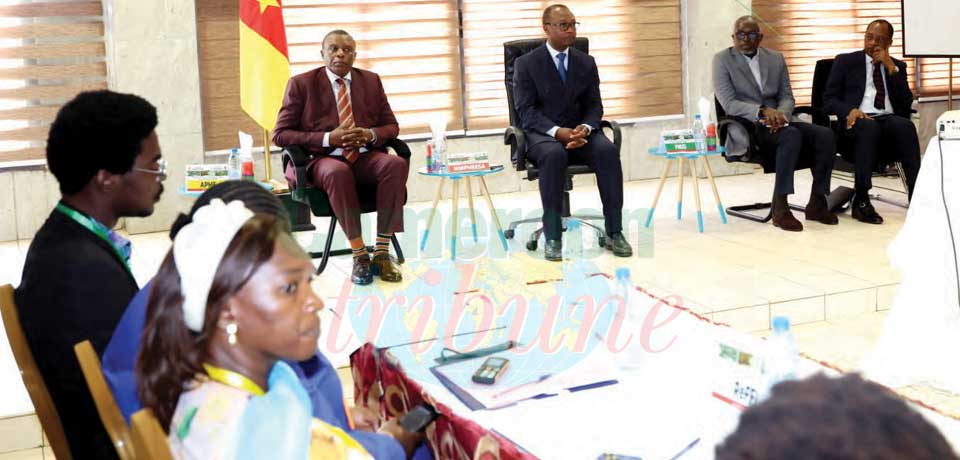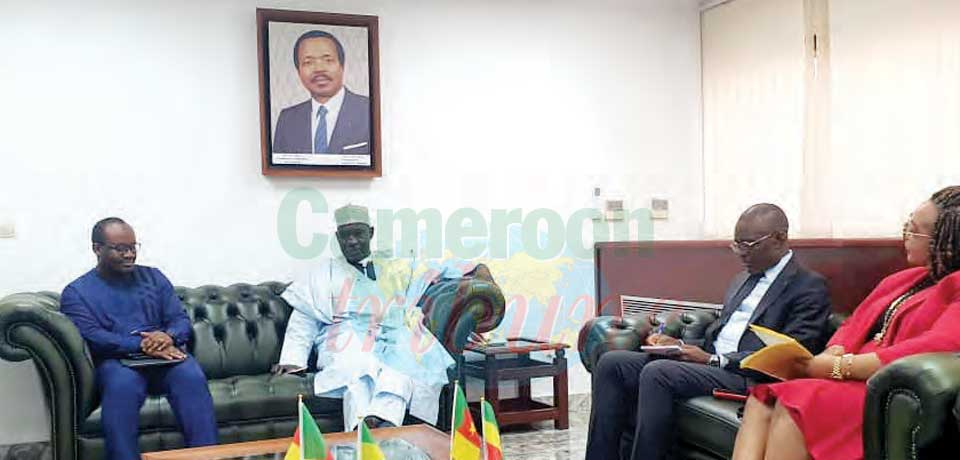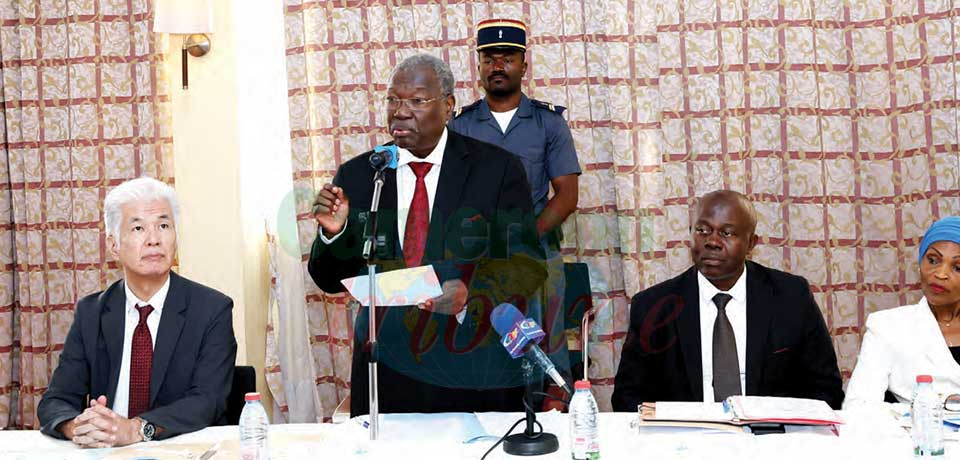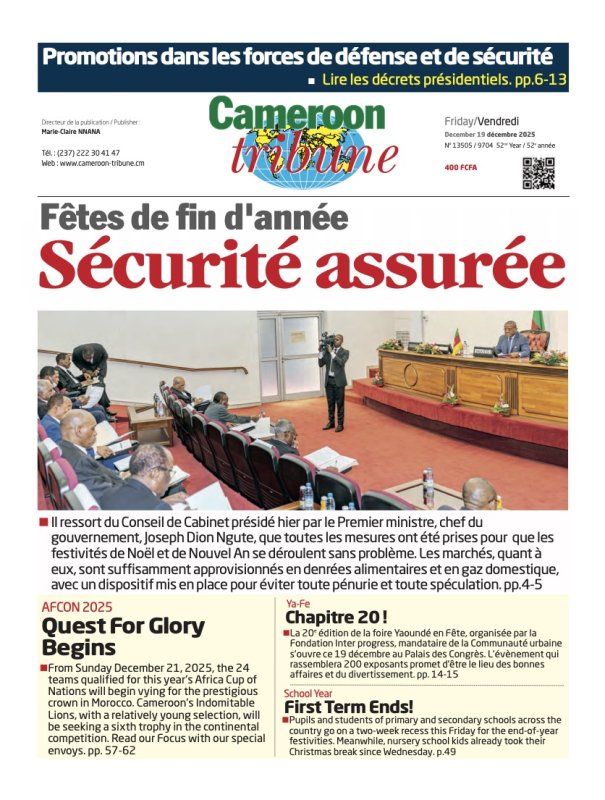Bamenda-Ekok-Enugu Corridor:South-West Draws Benefits From Highway
- Par Marie-Claire NNANA
- 17 Aug 2017 14:06
- 0 Likes
The 124-Kilometre Bamenda-Ekok highway, as Cameroon part of the transnational, is awaiting final reception under a one-year observation period.
The 443-kilometre long Bamenda–Enugu corridor comprises the Cameroonian portion of Bamenda-Mamfe-Ekok (124 kilometres).The Cameroon portion between Bamenda (capital of the North West Region) and Ekok (border with Nigeria) gracefully links the two Anglophone administrative Regions of Cameroon. It lineally runs through major towns of the North West Region including Bali (Mezam Division), Batibo and Widikum (Momo Division) and towns of the South West Region including Numba, Bachuo Akagbe, Mamfe (capital of Manyu Division), Eyumujock and Ekok. The new highway directly benefits the population within the area, including a boost to household income levels. The road construction provided jobs, empowered the private sector by easing up marketing of farm produce via feeder roads. Other immediate benefits encompass better social and rural infrastructure. It facilitates access to schools, markets, hospitals and evacuation of fruits like oranges and root-crops like cassava and palm-oil processing crushers.
Project history
Bamenda-Enugu Corridor is part of the Trans-African Highway conceived some three decades ago to link the African Continent from the East, Mombasa (Kenya) to the West, Lagos (Nigeria). It spans some 6,300 Kilometres across Uganda, Congo Kinshasa, Central African Republic, and Cameroon. The six member-states agreed on the project in the 1980s. Cameroon and Nigeria later consented on March 29, 2007 through a Memorandum of Understanding requesting funds from the African Development Bank to do the part of the African Project linking them.
The Nigerian part spans from Mfum (near Ekok in Cameroon), crossing Ikom, Abakiliki to Enugu. Major bridges on the road include the Munaya River in Cameroon (100 m) and the border bridge over the Cross River (280 m).
A former nightmare
During rainy seasons, the best four-wheel-drive vehicles were stuck in mud and women were refused aboard transport vehicles because they would not produce enough energy to push the lorries when stuck in the mud.T he cost of transportation and poverty among the roadside dwellers along this economic corridor is being significantly cushioned. It is tremendously transforming and enhancing the efficacy of transport and living standards of the population. Today, businesses flourish along the Bamenda Ekok highway and remain profitable to men and women alike.
Reactions
Kombe Henry Pasang: “Our Farmers Must Avoid Drying Cocoa By Roadsides”
Divisional Officer for Nguti
“The road is about 90% completed. We are already seeing the fruits of a tarred road. It is now easy to transport building material for the construction of houses in Nguti. With the coming of the road, other facilities, socially and economically will follow. Compensation was done in cases where people were affected in one or two spots along the road. Now, we must maintain the road from Kwain 4 to Nguti Town, we have to protect our road. Our farmers must avoid drying cocoa by the roadside whereas they have ovens to do that. Regarding safety, parents should contribute in educating their children to be careful crossing or loitering on the highway. It is no longer an earth surface road where vehicles may be slower but now vehicles are faster and dangerous with accidents.”
Henry Agbor: “We Paid FCFA 6000 From Mamfe To Kumba”
Regent of Mbin-Njong on the Kumba Mamfe road
“I am the regent of this Mbin-Njong village. It is a dream which has come true and everybody is happy with the road. We used to pay FCFA 6000 from Mamfe to Kumba but today we pay FCFA 3000. About one hundred people were displaced here in Mbin-Njong village. The road affected many houses and farms but all these people were compensated. I was personally affected and I was compensated. The last three persons were compensated three weeks ago (in July, 2017) since they were not present in the first drive. We have warned our population not to dry cocoa or split wood on the tarred road. We have also decided not to cut the road to cross our water pipes but to put new pipes on both sides of the road to protect the good gift from government.”
Agbor Benson Besong: “We Knew Mamfe Come-down, Mamfe Go-up During Ba...
Cet article complet est réservé aux abonnés
Déjà abonné ? Identifiez-vous >
Accédez en illimité à Cameroon Tribune Digital à partir de 26250 FCFA
Je M'abonne1 minute suffit pour vous abonner à Cameroon Tribune Digital !
- Votre numéro spécial cameroon-tribune en version numérique
- Des encarts
- Des appels d'offres exclusives
- D'avant-première (accès 24h avant la publication)
- Des éditions consultables sur tous supports (smartphone, tablettes, PC)














Commentaires